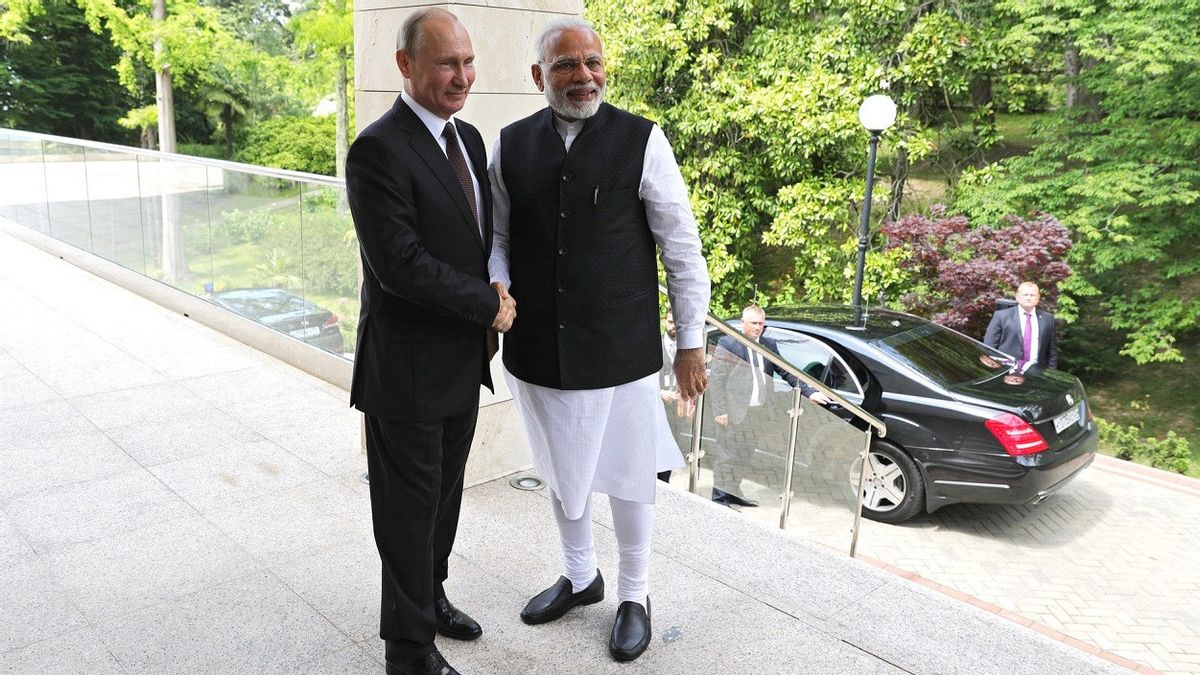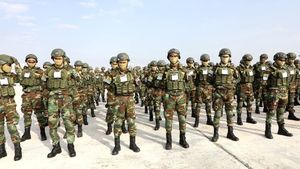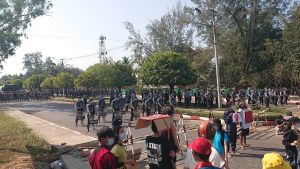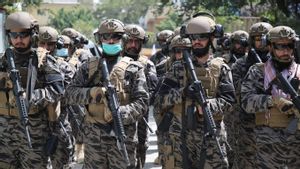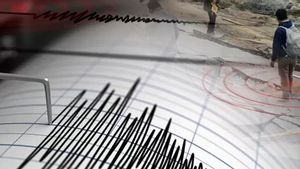JAKARTA - Indian Prime Minister Narendra Modi met with Russian President Vladimir Putin to discuss defense and trade ties, as India seeks to balance its relationship with the United States.
The agenda for the annual summit on Monday includes political and defense issues, according to India's Ministry of Foreign Affairs. PM Modi and President Putin's meeting in New Delhi, India took place hours after the defense and foreign ministers of the two countries held a strategic dialogue to discuss strengthening relations between India and Russia.
The two countries have also signed numerous bilateral defense agreements, including the procurement of more than 600.000 Indian assault rifles from Russia.
India's Ministry of Defense is calling it a "landmark" deal that will replace locally-made rifles with modern weapons, ending a "long search" for its army's needs.
Indian Foreign Minister Harsh Vardhan Shringla said India and Russia signed 28 investment pacts on Monday, including deals on steel, shipbuilding, coal, and energy.
India also started receiving S-400 missiles from Russia this month, Shringla said, adding that supplies would continue.

Speaking at the meeting, PM Modi said the agreement reached would be "beneficial in various sectors".
"Under the 'Make in India' program, our joint development and production projects make defense cooperation between the two countries stronger. Our cooperation is also expanding in the aerospace and civilian nuclear sectors," said PM Modi.
The two countries also signed an agreement to extend their military technology cooperation for another decade.
Speaking in the capital with Modi, President Putin said: "Our colleagues, the ministers of foreign and defense are here. This is the first meeting of this format. This means that we continue to develop our relations on the international scene and in the military field."
"We consider India a great power, a friendly country, and a friend who has stood the test of time," President Putin underlined.
India and Russia have a long history of close relations and have set a target of USD 30 billion in bilateral trade by the end of 2025.
But recently, India has grown closer to the United States, which is seen as crucial to countering China.
President Putin has had to deal with complex regional dynamics, with tensions escalating between New Delhi and Beijing, a traditionally Moscow ally, following a months-long military stalemate along their disputed border in eastern Ladakh.
At least 20 Indian soldiers were killed in border clashes with China last year. China says it lost four soldiers.

Russia, meanwhile, has expressed reservations over the creation of the Quad, a group involving the US, India, Japan, and Australia formed in response to China's growing assertiveness in the Indo-Pacific region.
Meanwhile, citing The New York Times, India's purchase of a missile defense system signaled that it was more concerned about China being bold on its borders than about angering the United States.
India and Russia announced an expansion of defense ties on Monday during President Vladimir Putin's visit to New Delhi, including details of a $5.4 billion sale of a missile defense system to India, despite the risk of sanctions from the United States.
"The S-400 deal has not only a symbolic meaning. It has a very important practical meaning for India's defense capabilities," Russian Foreign Minister Sergei Lavrov told India's ANI news agency.
In addition to the S-400 missile defense system, India and Russia signed a $600 million deal to manufacture hundreds of thousands of Russian AK-203 rifles locally and an additional agreement to expand cooperation between countries in military technology for the next decade.
The rifle, which is expected to replace the Kalashnikov-style rifles used by the Indian army, will be manufactured in the Indian state of Uttar Pradesh through a joint venture, according to local media reports.

Nandan Unnikrishnan, an expert on India's relations with Russia at the New Delhi-based Observer Research Foundation, said Russia provided India with an affordable and flexible arms partner.
"India doesn't have cats as China has with all our developmental challenges. While American or Israeli equipment is sophisticated, it needs three times as much money," Unnikrishnan said.
Unnikrishnan said a major impact for India was unlikely, as the United States needed a militarily strong India to balance China's rise in the region.
"As much as India takes the risk, I truly believe the US will also take the risk if it takes the path of sanctions. The US is sophisticated enough to understand that they must not harm their own potential ally in the bigger picture struggle they have."
SEE ALSO:
To note, President Putin's trip to India comes as Russian troops are piling up near Ukraine, leading Western officials to warn the Kremlin could be planning a large-scale invasion. They say Russia could face damaging sanctions from the United States and Europe if the Kremlin mounts an attack.
But his visit to India, his first overseas trip since a June summit with President Biden in Geneva, also sent a telegram that Russia still has many friends outside the West.
The English, Chinese, Japanese, Arabic, and French versions are automatically generated by the AI. So there may still be inaccuracies in translating, please always see Indonesian as our main language. (system supported by DigitalSiber.id)
